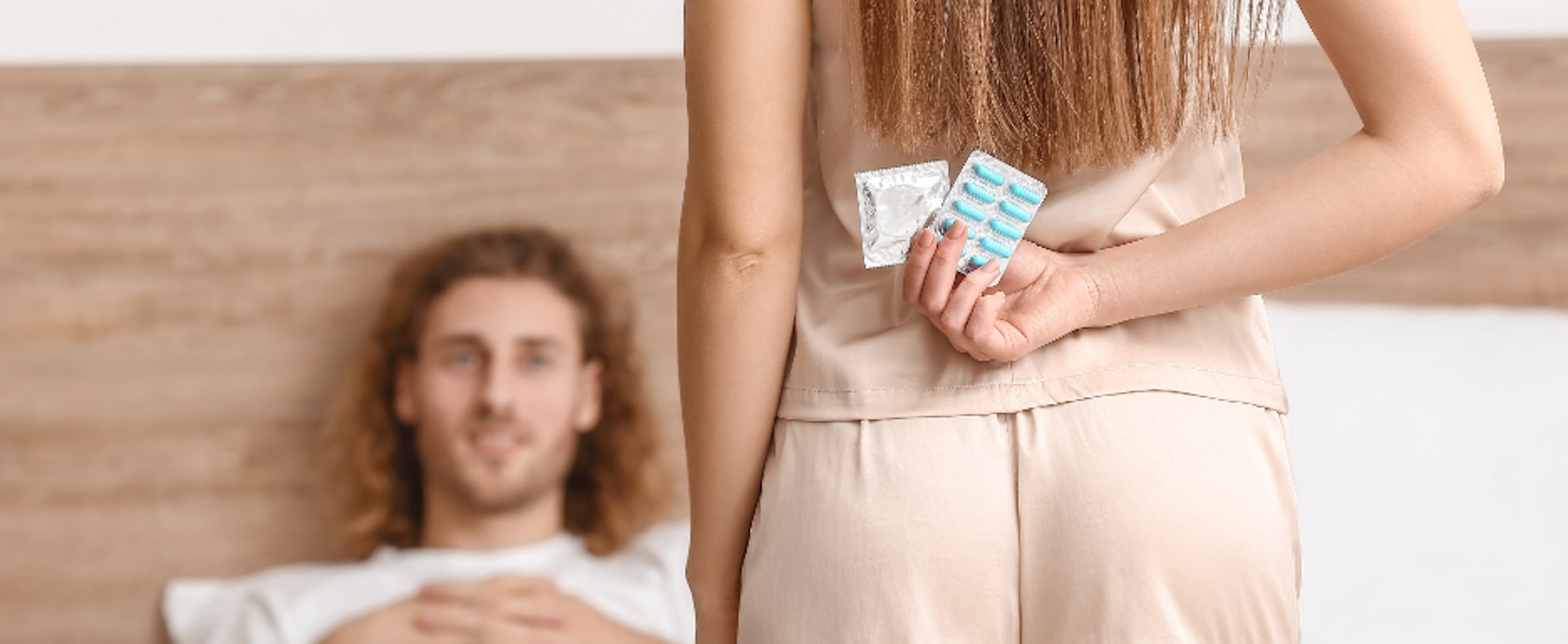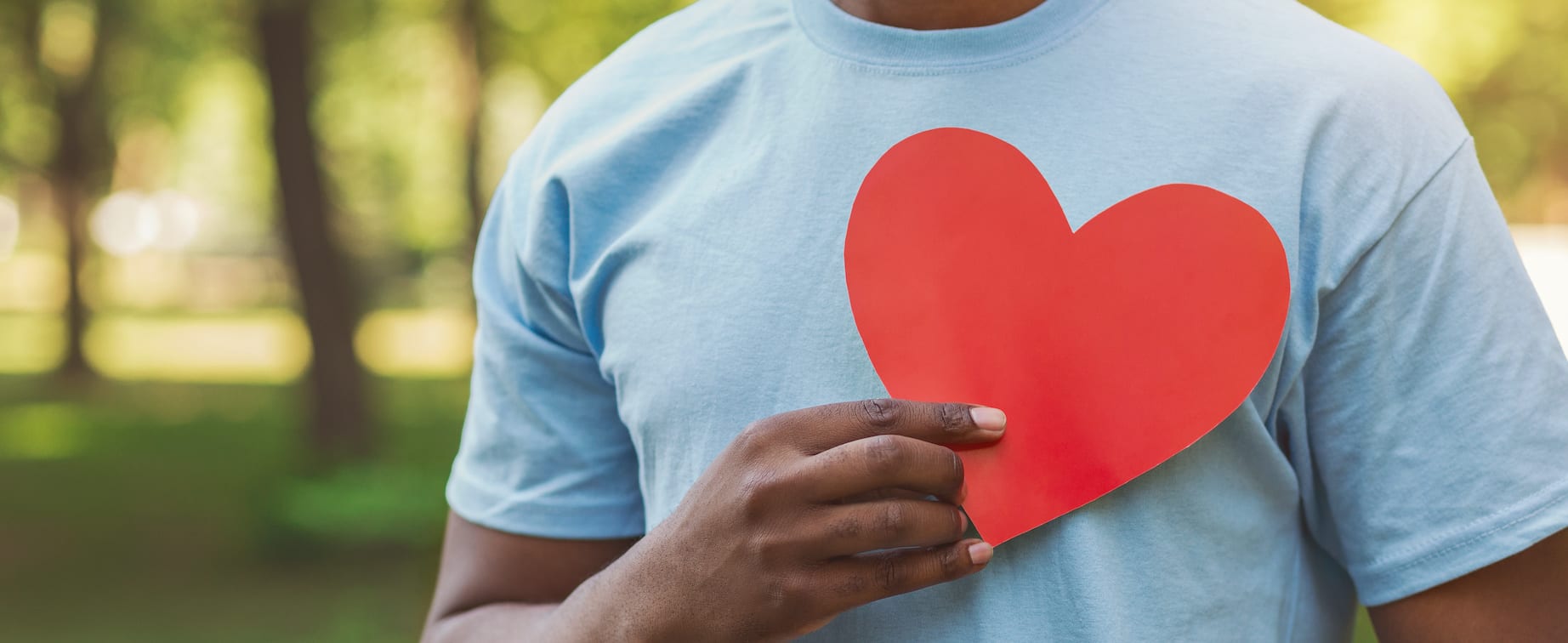If you’ve had a few drinks and are now wondering if it’s okay to take Cialis, we're here to give you the lowdown.
The short answer is yes, you can have a couple of drinks when taking Cialis. 1 But there’s a lot more to this than just a number.
Let's break down how alcohol and Cialis can affect each other and why it's not a good idea to drink too much when using ED meds like Cialis.
How Cialis Works

Cialis is a misunderstood drug by many men. Contrary to popular belief, Cialis does not lead to an instant boner. In fact, the drug doesn’t kick in until after you already have an erection. 1
The way Cialis works also gives good insight into how it mixes with alcohol and its effect on blood pressure.
So, before we get into alcohol and Cialis, let's touch on how Cialis works.
When you get turned on, your brain sends a signal to your penis to release a chemical called nitric oxide (NO). This chemical relaxes the blood vessels and muscles in your penis so more blood can flow in. This is what gives you an erection. 1
Normally, a compound called PDE5 stops this reaction, which leads to the loss of an erection. This is where Cialis steps in. Cialis blocks PDE5 so you can stay hard longer. 1
The thing is, Cialis also relaxes other blood vessels in your body slightly, which can lower your systolic blood pressure by a small amount, around 0.2 mmHg. This usually isn't a big deal for healthy guys, but add alcohol to the mix, and your blood pressure can drop further. 1
Alcohol and Cialis
Cialis causes a slight decrease of 0.2 mmHg in your systolic blood pressure, which is usually okay for healthy men. But throw in some alcohol, and your blood pressure could drop a bit more. 1
The exact reason why alcohol affects blood pressure isn't crystal clear, but studies have found that after drinking, blood pressure tends to lower for up to 12 hours before going back up. 2
So, if you're drinking around the time you take Cialis, it could potentially cause an additional drop in blood pressure. If your blood pressure falls below 90/60 mmHg, you may experience uncomfortable and dangerous symptoms like confusion, dizziness, nausea, fainting, headaches, or blurred vision. 3
Can You Drink Alcohol with Cialis?

Having a few drinks probably won't cause problems for healthy men, but avoiding going overboard is essential.
For reference, the FDA recommends a maximum of 5 units of alcohol while on Cialis. 1 One unit equals one shot of spirits or 83 mL of wine. 4 Going above this amount can lead to orthostatic hypotension (we’ll cover this in the next section). 1
It’s important to note that Cialis stays in your body for up to 36 hours. 1 Popularly known as the weekend pill, the long-lasting effect of Cialis makes it easier to have spontaneous moments.
However, this also means that drinking should be moderated until Cialis leaves your system. For up to 36 hours, you need to be aware that you will have Cialis and alcohol in your body at the same time. 1
Side Effects of Mixing Alcohol and Cialis
Both alcohol and Cialis relax your blood vessels, which lowers blood pressure. When you combine them, their blood pressure-lowering effects team up, and your blood pressure drops more than if you just took them alone. 1
This isn’t a big deal if you’re just having a couple of cocktails. But, if you’re throwing back more than five drinks, then the mix of Cialis and alcohol can really tank your blood pressure.
Blood pressure lower than 90/60 mmHg can lead to dangerous symptoms such as confusion, nausea, dizziness, fainting, headache, or blurred vision. 3
If you drink more than five units of alcohol (roughly equivalent to 5 shots of spirits), the FDA states you may have an increased risk of orthostatic hypotension. 1 This means that your blood pressure takes a nosedive when you stand up after sitting or lying down. Orthostatic hypotension can lead to symptoms such as increased heart rate, decreased blood pressure, dizziness, and headaches. This can lead to serious injury from falling. 5
Takeaway Tips

If you're planning a special dinner with a few drinks, it's okay, but remember to keep it in moderation. A couple of cocktails should be fine for most healthy guys, but keeping tabs on how much you're drinking is important.
The key is to stick to less than five units of alcohol when taking Cialis. One unit of alcohol translates to one small shot of spirits or 83 mL of wine. 4
Contact your doctor immediately if you experience any symptoms due to orthostatic hypotension, such as confusion, nausea, dizziness, fainting, headaches, increased heart rate, or dizziness. 5
Cialis can enhance your experience, but too much alcohol can lead to dangerous symptoms affecting your health.
If you have any other questions about using Cialis, check out mailMymeds’ Cialis blog. We've covered all the FAQs to help you use it safely and effectively.
If you're ready to start Cialis, accurately fill out a consultation questionnaire, and a U.S. board-certified doctor will review your answers and provide personalized treatment. To get started, place an order for Cialis today.
FAQs
How long after taking Cialis can you drink alcohol?
Cialis stays in your body for up to 36 hours. If you choose to drink during this time, limit your alcohol intake and monitor your symptoms. 1
How much alcohol can I drink while on Cialis?
You can enjoy a maximum of 5 units of alcohol when taking Cialis. 1 One unit of alcohol is equivalent to one shot of spirits or 83 mL of wine. 4
What happens if you drink alcohol with Cialis?
While a few drinks are generally okay, consuming more than 5 units of alcohol may result in orthostatic hypotension. 1 This can lead to symptoms like confusion, nausea, dizziness, fainting, headaches, increased heart rate, and dizziness. 5
The content in this article is intended for informational purposes only. This website does not provide medical advice. In all circumstances, you should always seek the advice of your physician and/or other qualified health professionals(s) for drug, medical condition, or treatment advice. The content provided on this website is not a substitute for professional medical advice, diagnosis, or treatment.






